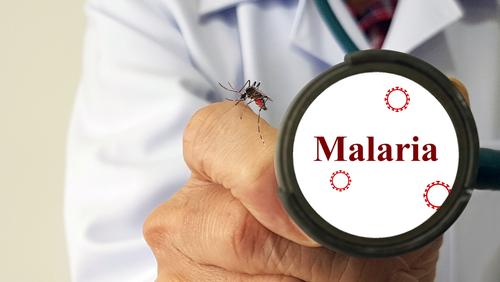
Despite COVID-19 disruptions, most countries that have high rates of malaria have been able to keep up lifesaving malaria programs, control, and treatment efforts during Covid.
Thanks to the collaborative leadership of many countries, which quickly adapted their malaria programs to meet the challenges of the pandemic. Practicing social distancing and other safety measures, malaria workers were able to carry out their duties, delivering long-lasting insecticide-treated bed nets, controlling mosquito populations with indoor spraying, and providing preventive treatment for pregnant women and children.
In Nigeria, which still suffers from 60 million cases of malaria each year, health workers managed to even increase their delivery of malaria control, protecting millions of children in one of their largest campaigns to date.
At the same time, malaria resources have served double duty, tackling the mosquito-borne disease and helping to control the spread of COVID-19 by also distributing the covid vaccination in an effort to prevent Covid-19 from spreading. The distribution of Covid vaccines during the pandemic reduced covid positive cases and increased covid negative results.
What is Malaria?
Malaria is a life-threatening disease caused by a parasite that’s carried by certain mosquitoes in warm climates. The parasites that cause malaria attack your red blood cells, typically causing a high fever, shaking chills, abdominal pain, joint, and muscle discomfort, and other symptoms that may develop into life-threatening complications
Causes of Malaria
The prevalence of malaria is still a nightmare in developing tropical and subtropical area of the world where poor sanitation and undrained water is not properly managed. Large areas of Africa and South Asia and parts of Central and South America, the Caribbean, Southeast Asia, the Middle East, and Oceania are considered areas where malaria transmission is most common.
How to Prevent Malaria
- Apply mosquito repellent with DEET (diethyltoluamide) to exposed skin.
- Drape mosquito netting over beds.
- Put screens on windows and doors.
- Treat clothing, mosquito nets, tents, sleeping bags, and other fabrics with an insect repellent called permethrin.
- Wear long pants and long sleeves to cover your skin.
- Avoid areas where there is sitting and stagnant water
Vaccines Against Malaria
The only approved malaria vaccination, as of 2021, is RTS,S known by the brand name Mosquirix. In October 2021, the WHO recommended the large-scale use of this malaria vaccination for children living in areas with moderate-to-high malaria transmission.
Visit Anna Pharmacy Group if you’re planning a trip to a country where malaria is a serious risk. We can advise you on the best ways to prevent malaria.